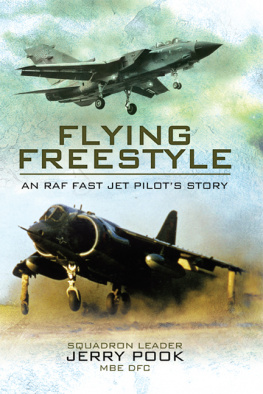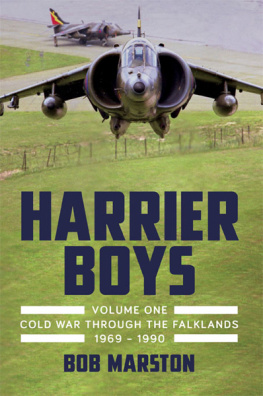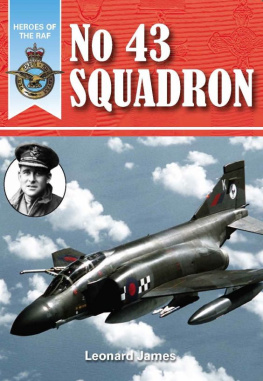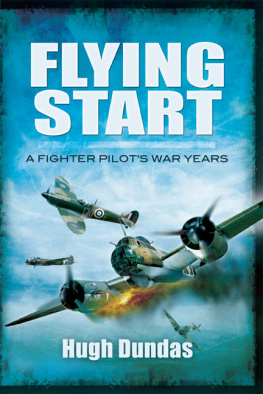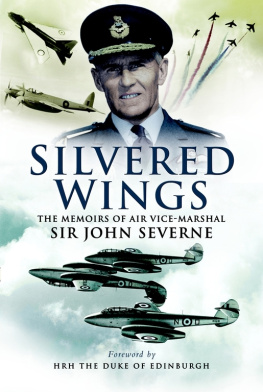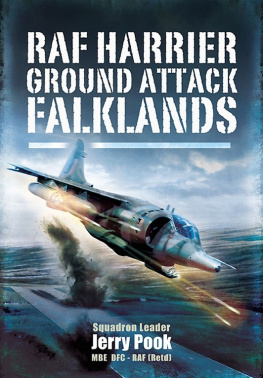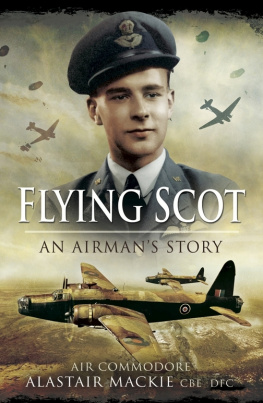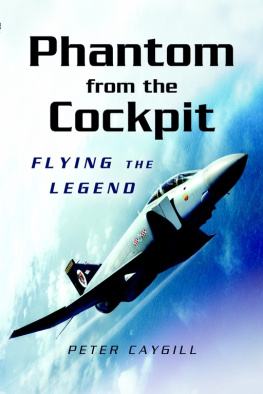by Air Vice-Marshal R.D. Elder
CBE FRAeS RAF
I first met Jerry Pook at the Royal Air Force College Cranwell in 1965, almost immediately after arriving there myself as a fresh-faced aspirant Flight Cadet. Amongst my recollections of those frantic early days of cadet life, was the close attention meted out to us by the Senior Entry, and being strongly impressed by this dapper and energetic Under Officer who at that time seemed impossibly senior to me and who was to win the coveted Flying Prize on graduation. Unbeknown to us then, our paths were to cross many times in our later careers: on Hunters, in the Cold War Recce world and on Tornados and it soon became apparent that his innate skill and fierce, unbridled enthusiasm for flying would take him on to greater things in the air. Jerry also seemed to possess that indefinable lucky streak, so essential for survival in those accident-prone days, when we lost many colleagues in flying accidents.
Jerry was, and is (!), one of lifes natural rebels, and even during early training, he made no secret that he would never aspire to high rank or administrative responsibility. His great talent is in the skies as a gifted airman and leader. In Bahrain, I flew with him as chase pilot for his Fighter Recce sorties; during the Cold War we were contemporaries in the Ground Attack and Recce world in RAF Germany, and in the late 1970s we were both Flight Commanders at sister Recce stations in NATO, Jerry flying RF 104G Starfighters at RNLAF Volkel and I just 20 miles away over the border in West Germany, flying Jaguars. At the time we were all considerably impressed not only with Jerrys flying skills, but also his command of the Dutch language when dealing with his fire-cracker pilots!
Allied to his sustained professionalism, Jerry deployed a caustic wit and laconic sense of humour which enabled him to find entertainment in the most trying circumstances an essential requirement on exercise and in war. His professional talents (and sense of humour) were tested to the limit in the Falklands War where he was awarded the Distinguished Flying Cross for demonstrating outstanding courage and leadership in the air. Later on at RAF Cottesmore, where I was his Station Commander, he was awarded the MBE, for his excellent work training flying instructors of the 3 nations. who contributed to the famous Trinational Tornado training Establishment.
Preface
The RAF I joined in the early 60s still retained many aspects of the Second World War inspired professionalism and determination to achieve the operational task. Flying accidents were frequent, particularly in single-seat fghters. As an example, just ten years previously, at the end of the massive expansion caused by the Korean War, the RAF had lost nearly 500 aircraft in one years peacetime training. In the early 60s the service was losing, on average, fifty to sixty pilots killed each year in peacetime. These facts were well known to all of us aspirant pilots. In the main they caused no second thoughts or fears of mortality rather they were seen as an exclusive and stimulating cachet to the overwhelmingly thrilling prospect of military flying. There were no non-volunteers among us.
This is unashamedly a story about flying and the sheer lust to get into the air at all costs. It is about everything to do with becoming a military flying professional and the adventures, sacrifces and heartaches involved. It is about surviving the risks through sheer luck, guile and maybe some animal self-preservation instinct on my part. If my success was also due to any special flying skll then that was also good fortune on my part. Many of my colleagues and friends were killed in flying accidents. Of my Cranwell Entry of about forty pilots who graduated in 1966, seven were killed in flying accidents, three of them while flying Lightnings.
By the end of my service flying career I had flown some 5,500 hours on the Jet Provost, Gnat, Hunter, F104G Starfghter, Harrier and Tornado. I had also been an instructor on several of these types. I flew for twenty-eight years non-stop, without a Staff or Ground Tour. I flew overseas tours of duty in the Persian Gulf, West Germany and Belize. The majority of my flying took place during the Cold War, which was treated very much as a Hot War by our commanders. I also flew low level ground attack and recce missions during the Falklands War.
Looking through my flying log books I can fnd only about eight complete months during that twenty-eight year period when I did not fly at all, most of those periods being taken up by various Ground School courses on new aircraft types.
This is not a career offcers story and it is written from the point of view of a relatively junior pilot. I joined the RAF to see the world from a single-seat fghter cockpit, not to become an air marshal. A squadron commander whose opinion I valued, once told me that loyalty was something you owed to your subordinates as a bound duty, while getting it in return only if you had earned it.
I started writing this story shortly after completing my Falklands Diary , having discovered an enjoyment of writing for its own sake. I have concentrated on the flying, and there is scant attention to the domestic details of my life, for which I apologize to my loved ones, who may be disappointed not to find more reference to them. I hope this will not be seen as a sign of my indifference, rather as an indication of my total enthusiasm and absorption in the business of flying aeroplanes from an early age until the sad day in 1992 when I was stopped permanently from flying military aeroplanes because of ill health.
Jerry Pook
2008
The views and opinions expressed in this book are those of the author alone and should not be taken to represent those of HMG, MOD, the RAF or any government agency.
Chapter 1
Beginnings
30 May 1982. About 4 kilometres short of the target things began to happen very fast. I could see the target area clearly (the saddle of Mount Harriet) and realized that it was unoccupied, i.e. no helicopters were visible on the ground. At the same moment we crossed a dirt road on which several military vehicles were stopped. Within a couple of seconds I felt a significant thump in the airframe somewhere behind me. I knew I had been hit. Having seen no tracer or SAMs, I assumed it was small-calibre stuff. JR, my wingman, had seen the vehicles and observed the hit on me. He transmitted straight away: Jerry, youre leaking fuel!
This was a considerable understatement as I immediately began to generate a substantial contrail of fuel which, of course, I could not see. A quick glance in the cockpit showed nothing amiss and a glance ahead confirmed that our planned target area was bare of activity. All of the above happened within the space of about ten seconds. Before reaching the landing zone, I decided to turn hard left immediately and try an opportunity attack on the artillery position which lay only a few seconds flying time to the west, before setting course for home with my punctured jet. I crossed over JR in the turn, calling my intentions on the radio. (JR did not hear this as my radio was packing up again.) I rolled out on a south-westerly heading and looked right to the saddle of Wall Mountain, where the artillery position was located. Within a few seconds I heard a garbled call from JR, who I picked up about a mile to my right, heading towards me in a dive onto the target, which I now saw clearly. Instinctively I hauled around to the right at full power on to the target, simultaneously calling JR to break out left after my attack, which was almost head-on to his. By chance we had achieved the perfect coordinated attack. I dimly remember JR flashing past me as I rolled out and fired my rockets from close range, aiming low to allow for the reduced gravity drop. (Naturally, peacetime firing ranges were only of academic interest with targets that shot back.) The first rockets were exploding amongst the gun positions before the last had left the pod After the attack, a hard right turn left me running out at maximum speed to the south-east. I could no longer see JR, who was almost back in position on my right, strafing the road as we passed to keep heads down. Barely two minutes had elapsed since I had been hit and now I settled down to check a few things. By now one of my two hydraulic systems had failed and, as I pulled up into the climb, several unanswered calls to JR demonstrated that my radios had packed up for good. The final twenty minutes of my sortie were to be flown in silence. In the climb through cloud I checked fuel again; before the hit I had over 4,500lb of fuel and, as previous small calibre hits had caused leaks from one side only, I was still confident that I could get back to the ship.

